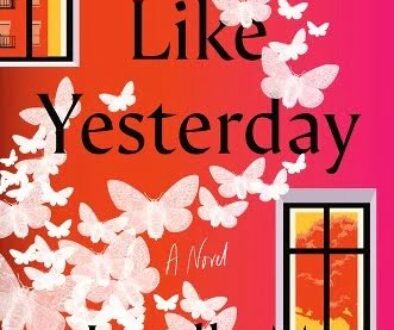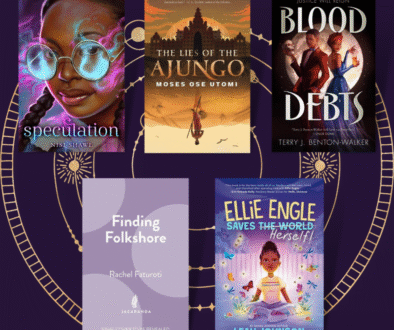The Plot Thickens: Witchlings
Content warning: mild violence; parental and spousal abuse
On the look out for a book about community, friendship, and cherishing your dreams no matter how numerous or different they may be? In Claribel A. Ortega’s new middle grade novel, Witchlings, you get that and so much more!
Let’s talk about that more. First, as a contemporary fantasy, Witchlings does not get stuck in the trap of explaining how its world co-exists yet goes unbothered by the trappings of non-magical—or ‘humdrum,’ as the book describes—life. Instead, the novel devotes itself to the events unfurling strictly within the Twelve Towns that make up the nexus of this magical universe within the present-day. There is magical tech to take the place of smartphones, witch-specific slang, and universal governance by magical elders throughout Twelve Towns, including Ravenskill, where our protagonist, Seven Salazar lives. This aspect of storytelling structure could go unremarked, however, it gives the interconnectedness of the magical community and the direness of the situations faced by Seven and her friends weight (outside of tweens being given an adult-sized burden when there are plenty of qualified adults who could and should step in at any time).
Secondly, the personal and quest-specific trials that Seven goes through not only leads to character development between her and those around her, it also leads to confrontation of community values. When Seven is forced to team up with Thorn La Roux—a complete stranger she meets on one of the most stressful nights of her life—and Valley Pepperhorn—a rich bully who she has spent most of her life trying to avoid—in order to prove that they all deserve the opportunity to grow as witches, she learns more about her personal judgments and that friends can come from unexpected places. To be clear, this is not a story about awful people finding redemption. This is a story about doing your best to stand up for what’s right while also acknowledging that what you see is not always what you get. For instance, while Valley lives on the Hill with other wealthy members of Ravenskill, she is proud to be House-less, very much unlike her father and other community members who view those dubbed Spares as unskilled labor to be exploited without the rights of any other witch. In fact, Valley’s reception of their newly shared lot as Spares helps Seven to confront the prejudices she’s held about Spares, leading her to question injustices she’s never noticed before.
Finally, by invoking an ancient quest to change their fates from eventually losing their magical abilities, Seven finds herself interacting with the Town Gran, the highest positioned witch in Ravenskill, and uncovering a mystery that puts her baby brother and Twelve Towns in danger. Because the ancient quest does not permit adult interference, Seven, Thorn, and Valley find themselves in various deadly situations which are heightened by Seven’s mistrust of Valley’s intentions, given her history of pranking Seven in school. Thorn is plagued by the death of her twin brother at the hands of the very creature they are tasked to find and balances facing this fear with keeping the peace among her new coven. Each time they get close to finding the creature, they find clues that more lies behind the recent attacks the creature is suspected of. This more involves how Twelve Towns is run and how well the witch community can hope to run when they allow the subjugation of parts of their towns. With this information, Seven, Thorn, and Valley are able to get help from adults and the book wraps up satisfactorily.
Overall, you can tell that Ortega put a lot of thought into how injustice works, how personal relationships affect plot points, and developing growth for the main characters and community at-large. Witchlings makes a great starting point for a series that I would love to continue.



